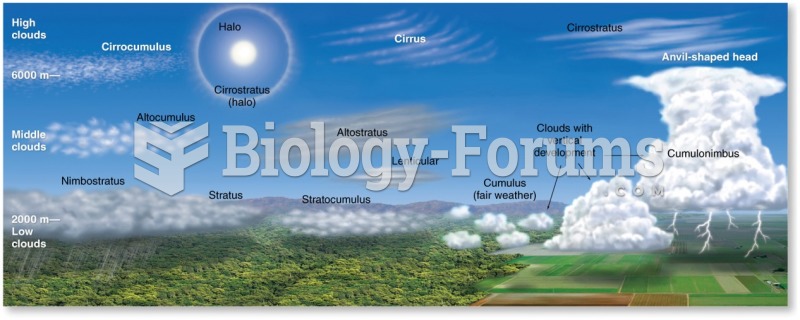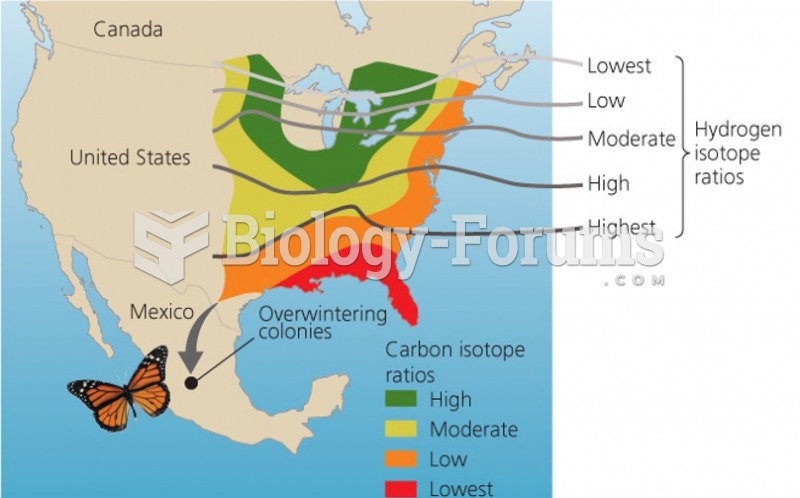|
|
|
Elderly adults are at greatest risk of stroke and myocardial infarction and have the most to gain from prophylaxis. Patients ages 60 to 80 years with blood pressures above 160/90 mm Hg should benefit from antihypertensive treatment.
Pregnant women usually experience a heightened sense of smell beginning late in the first trimester. Some experts call this the body's way of protecting a pregnant woman from foods that are unsafe for the fetus.
For pediatric patients, intravenous fluids are the most commonly cited products involved in medication errors that are reported to the USP.
If you could remove all of your skin, it would weigh up to 5 pounds.
In the United States, there is a birth every 8 seconds, according to the U.S. Census Bureau's Population Clock.







